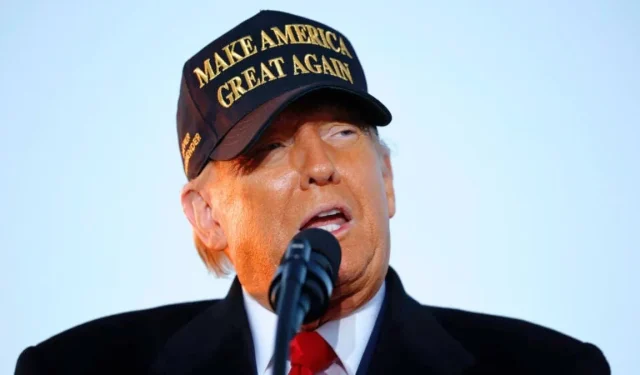
Following his victory in the 2024 presidential election, Donald Trump’s economic strategies have emerged as a pivotal topic for his supporters. However, many are about to encounter a challenging reality regarding tariffs, as they may not yield the economic benefits originally anticipated.
In a recent TikTok video, user P (@socialist_mac_miller) highlighted the misconceptions surrounding tariffs among Trump’s base. Contrary to widespread belief that these tariffs would reduce prices for American consumers, P argued that companies are already increasing prices preemptively, preparing for what he aptly termed “dumbass tariffs.” Various businesses have also confirmed they are arranging large orders prior to the anticipated implementation of these tariffs as reported by The Washington Post.
P further clarified that tariffs should not be seen as taxes imposed on foreign countries. Instead, they represent penalties incurred by American businesses, which, in turn, will be transferred to consumers in the form of higher prices. His reactions stem from a profound frustration with voters who may have cast their ballots without fully grasping the implications of such policies. As evidenced by the surge in interest for the term “Trump tariffs” on Google Trends, this topic became relevant only after the election, illuminating a knowledge gap that many voters face.
MAGA fascists have no fucking idea of the hell that is coming their way.? ??? pic.twitter.com/sLWn75vjBo
— Bill Madden (@maddenifico) November 9, 2024
P concluded his video by expressing that he didn’t want to hear complaints from Trump supporters as prices for everyday items, like groceries, soar. He notably quipped, “I don’t want to hear a fucking peep out of any of you who voted for Pumpkin Spice Palpatine when the price of a carton of eggs shoots up to $18.” This humorous yet pointed commentary serves to underscore the growing anticipation of rising costs in a Trump-led economic landscape.
Will Tariffs Encourage Local Manufacturing?
Trump’s economic plan is fundamentally built upon the premise that tariffs will incentivize American manufacturing. In theory, this could lead to lower prices for agricultural products. However, P argues that American firms are reluctant to pay competitive wages when cheaper labor exists overseas. For instance, garment workers in Bangladesh earn as little as $113 per month while Bangladesh ranks as the second-largest exporter of clothing.
Additionally, the agricultural sector in the United States heavily relies on undocumented immigrants, with estimates indicating that over half of the crop workers lack legal status according to the USDA. With Trump’s intention to enforce strict immigration policies, the ability to source local produce sustainably could be significantly hampered, calling into question the feasibility of his economic vision.




Leave a Reply